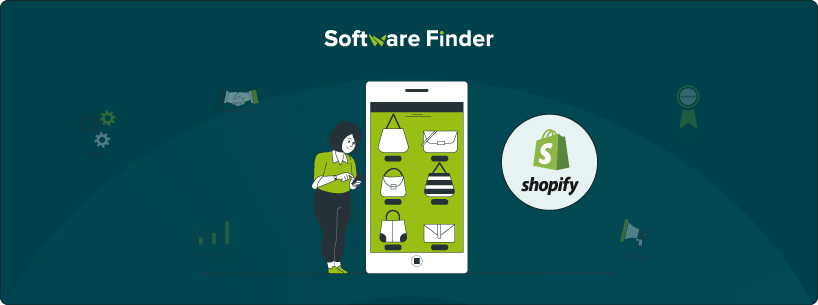
Every thriving Shopify store owes its success to strong relationships with customers. Shoppers today demand quick personalized experiences, and this has ruled out the use of basic spreadsheets and generic email tools.
An effective customer relationship management (CRM) will centralize all of your customer records in a single location, manage retention as well as prospecting automatic follow-ups, monitor sales generation and drive marketing that truly resonates.
In this guide we will take you through the best CRM for Shopify, their key features, strengths and limitations, and their costs so that you can get the one that perfectly fits your store.
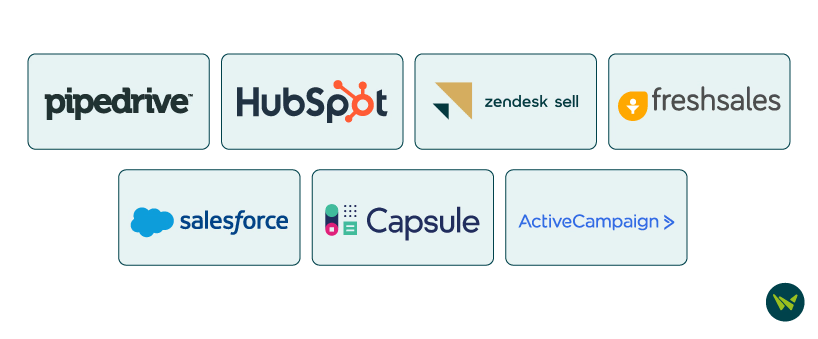
Company | Rating | Trial Info | Pricing | Best for | Main Features |
4.4/5
| 14-day free trial
| Starts at $19/seat/month | Visual, Automated Sales Management |
| |
4.6/5
| Free Plan Only
|
Included for Free with HubSpot premium | AI-Powered Multi-channel Business Management |
| |
4/5
| 14-day free trial
| Starts at $25/user/month | Sales–Support Integration |
| |
4.2/5
| 21-day free trial
| Starts at $0 for 3 users
| AI-Driven Sales And Marketing |
| |
Salesforce | N/A | 30-day free trial
| Starts at $0/user/month
| Comprehensive, Data-driven Customer Management |
|
5/5
| 14-day free trial
| Starts at $0 for 2 users
| Simple And Affordable CRM With Smart Shopify Sync |
| |
4.8
| 14-day free trial
| Starts at $15/month
| AI-Driven Marketing And Sales Automation |
|
Every growing Shopify store needs a CRM system, as it will help centralize customer data, streamline communication processes, and automate many procedures. It allows you to see a detailed history of every customer's purchase behavior, preferences, and contact, and thus gives you easy navigation on how to provide a personalized experience to them.
A CRM assists you in working smarter, reaching customers more efficiently, and turning one-time consumers into long-term brand champions. Let’s explore each CRM in detail to see which fits your Shopify store best.
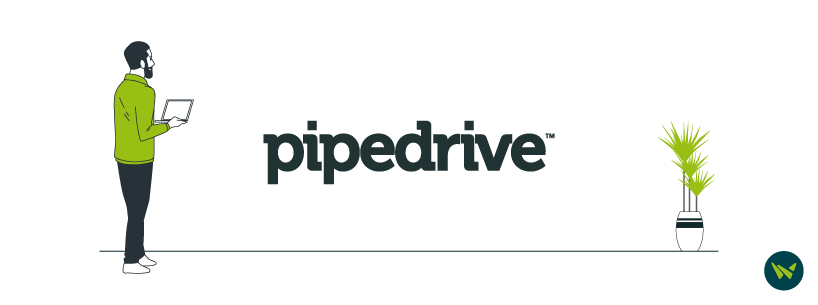
Pipedrive is a CRM that takes into consideration the sales team, with simple visual pipelines and activity-focused tasks designed to make the entire processes of the sales process clear and actionable. It takes tasks, such as follow-up reminders, forwarding of new leads to relevant individual, and progressing deals, which saves you time on repetitive administration so you can use that time in closing sales.
Standout Features
- Visual Customizable Pipelines: Easily drag and drop deals through each stage, shaping the process to match your store’s unique sales flow
- Workflow Automations: Create time-saving triggers and sequences, like sending an email when a deal reaches a particular stage or automatically syncing data from Shopify
- AI-Powered Sales Assistance: Receive clear insights on deal potential, helpful prompts for your next move, and automated suggestions to keep sales moving forward
Pros And Cons
Pros | Cons |
|
|
Pricing
The software comes with a 14-day free trial and a range of pricing plans to choose from:
- Lite – $19/seat/month
- Growth – $34/seat/month
- Premium – $64/seat/month
- Ultimate – $89/seat/month
Disclaimer: The pricing is subject to change.
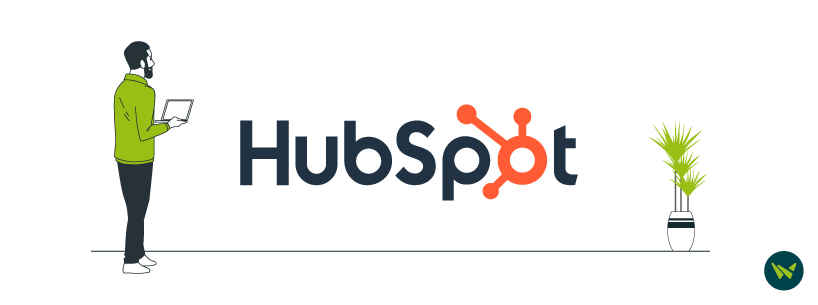
HubSpot is a CRM platform that aims at providing a marketing, sales, service, content and operational capability package in one single platform. It is highly scalable enabling small operation shops to larger mid-sized businesses to run with ease.
Standout Features
- Smarter Workflow Automation: Easily automate follow-ups, lead nurturing, campaign triggers, and customer engagement across your sales, marketing, and service teams
- Reporting Dashboards: Track your progress with real-time dashboards, sales forecasts, and performance insights, perfect for scaling Shopify stores and beyond
- AI-Powered Tools: From content creation to customer responses, HubSpot’s AI features, including Breeze AI Agents, help automate your knowledge base, streamline workflows, and keep your team focused on what matters most
Pros And Cons
Pros | Cons |
|
|
Pricing
HubSpot’s CRM is free for startups and small businesses, giving them essential customer management tools right out of the box. And when you purchase any premium HubSpot software, you automatically get HubSpot Smart CRM included, offering advanced features at no extra cost.

Zendesk Sell is a new-generation sales CRM that is designed on the principles of clarity, accuracy, and efficiency. With its sleek interface, powerful mobile app, and sharp focus on pipeline visibility and forecasting, it helps sales teams stay productive and on track. Its real edge comes from how effortlessly it connects with the broader Zendesk ecosystem, giving teams a single, connected view of sales and support activity.
Standout Features
- Visual Pipelines And Forecasting: Easily manage deals with drag-and-drop pipelines, customizable dashboards, and sales forecasts
- Insightful Reporting: Robust reporting features help forecast revenue, track goals, and measure the success of email campaigns and call performance. You can even monitor individual sales representative (reps) activity to see who’s driving results
- Shopify Integration: Sales reps can instantly access Shopify data directly within the CRM. This cuts down on context switching, empowering teams to engage with customers more efficiently and effectively
Pros And Cons
Pros | Cons |
|
|
Pricing
Zendesk Sell offers a 14-day full-featured free trial. Below is the pricing breakdown:
- Sell Team – $25/user/month
- Sell Growth – $69/user/month
- Sell Professional – $149/user/month
- Sell Enterprise – $219/user/month
Disclaimer: The pricing is subject to change.
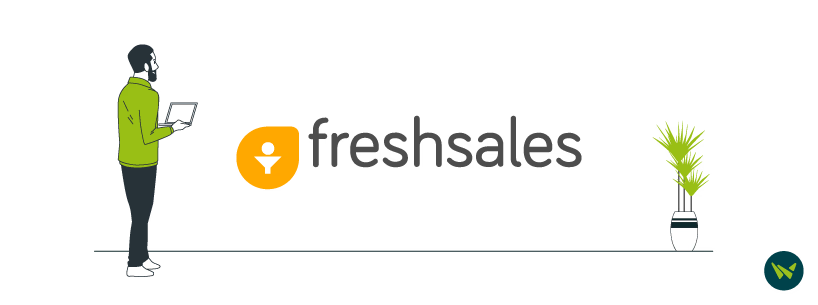
Freshsales by Freshworks brings sales, marketing, and customer engagement together in one AI-powered platform. For Shopify merchants, the native Shopify app makes integration effortless, automatically syncing customer, order, and product data in real time.
Standout Features
- Freddy AI Insights: Get intelligent recommendations for closing deals, forecasting revenue, and refining customer engagement strategies
- Campaign Management: Helps run highly targeted sales campaigns that attract leads with real potential. Powered by Freddy AI, it streamlines lead capture, qualification, routing, and tracking
- 360° Customer View: Offers a complete 360° view of every customer, giving your team the insights needed for meaningful interactions
Pros And Cons
Pros | Cons |
|
|
Pricing
Freshworks offers various modules like Customer Service, IT and Employee Service, and CRM. Additionally, it comes with a 21-day free trial. Here’s the pricing breakdown of the CRM module:
Freshsales and Freshsales Suite:
- Free – $0 for 3 users
- Growth – $11/user/month
- Pro – $47/user/month
- Enterprise – $71/user/month
Freshmarketer:
- Free – $0 (100 marketing contacts)
- Enterprise – $18/month (500 marketing contacts)
Disclaimer: The pricing is subject to change.
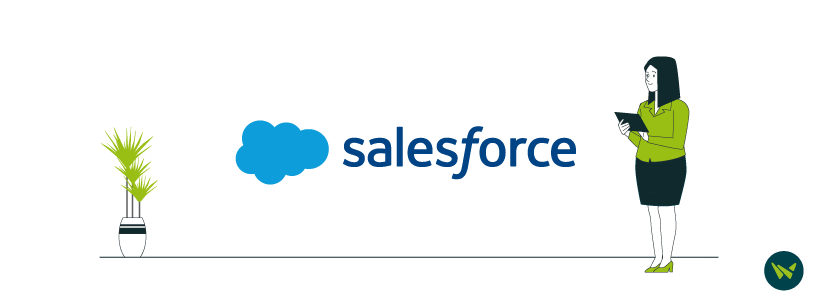
Salesforce is a powerhouse CRM, offering tools for everything from lead management and sales automation to customer service and advanced analytics. The platform's AppExchange integrations, allows you to easily sync orders, products, and customer details, giving you a 360-degree view of every shopper.
Standout Features
- Multi-Store Integration: Allows you to connect multiple Shopify stores to Salesforce, ensuring all customer, order, and product data is managed in one centralized system
- Automatic Profile Creation: Generates detailed customer profiles automatically, enriched with data pulled from multiple online sources to provide deeper insights
- 360° Customer View: Brings together sales, customer service, marketing automation, and analytics in one platform, giving businesses a complete understanding of every customer’s journey
Pros And Cons
Pros | Cons |
|
|
Pricing
The platform comes with a 30-day free trial. Below is the pricing breakdown of the software:
- Salesforce Foundations – $0
- Starter Suite – $25/user/month
- Pro Suite – $100/user/month
Disclaimer: The pricing is subject to change.
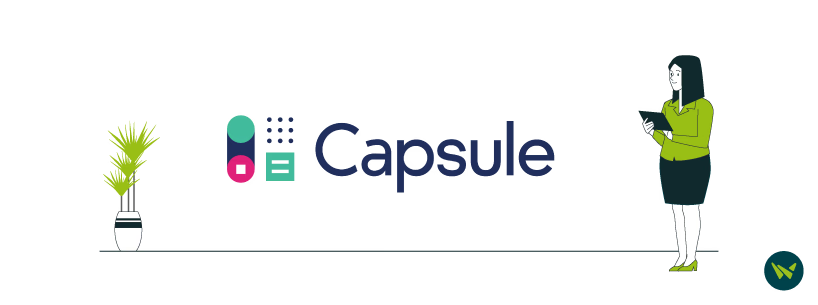
Capsule is a user-friendly CRM that works with small and growing teams. The ease of use and integration feature plays a significant role in the popularity of the platform. It fits perfectly in the stores that use Shopify and need a lightweight, but powerful CRM not burdened with complexity and costs.
Standout Features
- Shopify Integration Via Zapier: Automatically create or update contacts with Shopify order details, keeping your store and CRM perfectly in sync
- Visual Pipelines And Project Boards: Track sales and post-purchase workflows using kanban-style boards, making it easy to manage deals and fulfill orders
- Contact Management: Centralize all the contact management in one place, eliminating the need for managing spreadsheets and tracking entire customer interaction histories, including emails, calls, files, and notes
Pros And Cons
Pros | Cons |
|
|
Pricing
The software offers the following pricing modules and comes with a 14-day free trial:
- Free – Free forever (maximum 2 users)
- Starter – $21/user/month
- Growth – $38/user/month
- Advanced – $60/user/month
- Ultimate – Custom pricing
Disclaimer: The pricing is subject to change.
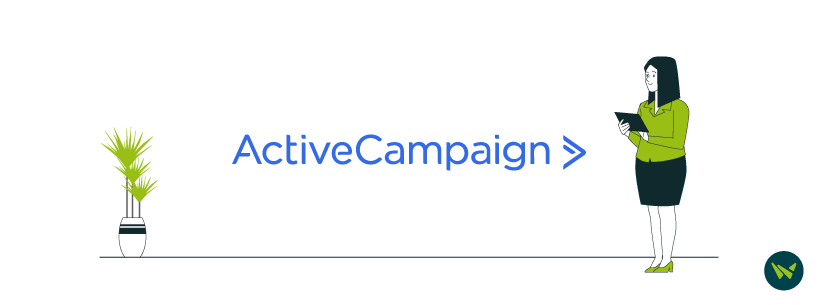
ActiveCampaign is a flexible sales platform that integrates email marketing, sales automation and CRM that helps through advanced automation and AI. Shopify integration will sync orders, products, customers, and even abandoned carts to power truly personalized automations and workflows that increase conversions.
Standout Features
- Active Intelligence: This feature provides merchants with real-time recommendations and performance insights, enabling them to anticipate customer behavior and optimize campaigns proactively
- Email Marketing: Offers tools such as drip campaigns, abandoned cart triggers, follow-ups, and reminders, all designed to nurture engagement efficiently
- Marketing Automation: Employs intelligent workflows, segmentation, and personalization to help you engage contacts at scale instead of manually managing each interaction
Pros And Cons
Pros | Cons |
|
|
Pricing
The software offers customizable pricing plans, with prices increasing based on the number of email contacts, and includes a 14-day free trial. Below is the pricing plan for 1,000 email contacts:
- Starter – $15/month
- Plus – $49/month
- Pro – $79/month
- Enterprise – $145/month
For the WhatsApp plan, the pricing below is based on 5,000 WhatsApp contacts and price increases with the number of contacts:
- Core – $319/month
- Advanced – $319/month
- Premium – $703/month
Additionally, the platform offers a bundled plan that includes Email plus WhatsApp tier, with 1,000 email contacts and 5,000 WhatsApp contacts.
Disclaimer: The pricing is subject to change.
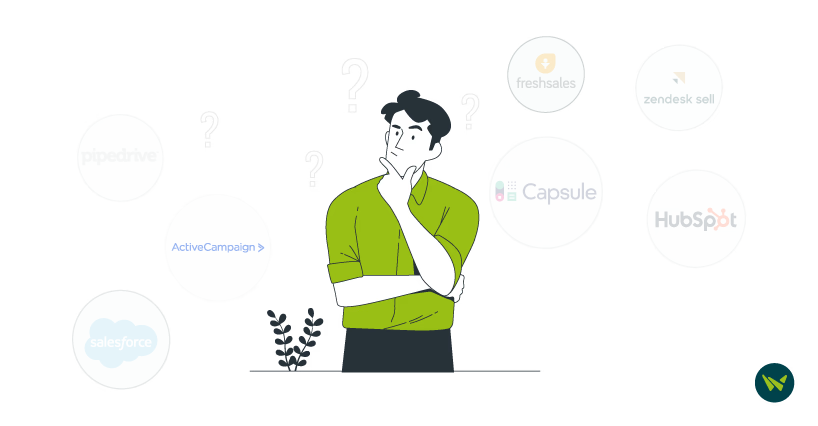
Choosing the best CRM software for your Shopify store is all about matching your business goals with the strengths of each platform. If automation is your priority, tools like Pipedrive or ActiveCampaign deliver powerful workflows.
For deep customization, Salesforce stands out. HubSpot and Freshworks offer robust, all-in-one marketing and sales solutions, while Capsule provides a simple, budget-friendly option without unnecessary complexity.
When evaluating your options, think about how easily the CRM integrates with Shopify, how well it automates follow-ups, its multichannel communication capabilities, and the depth of its reporting features. Most of these platforms offer free trials, taking one for a spin can reveal how naturally it fits into your daily processes.
